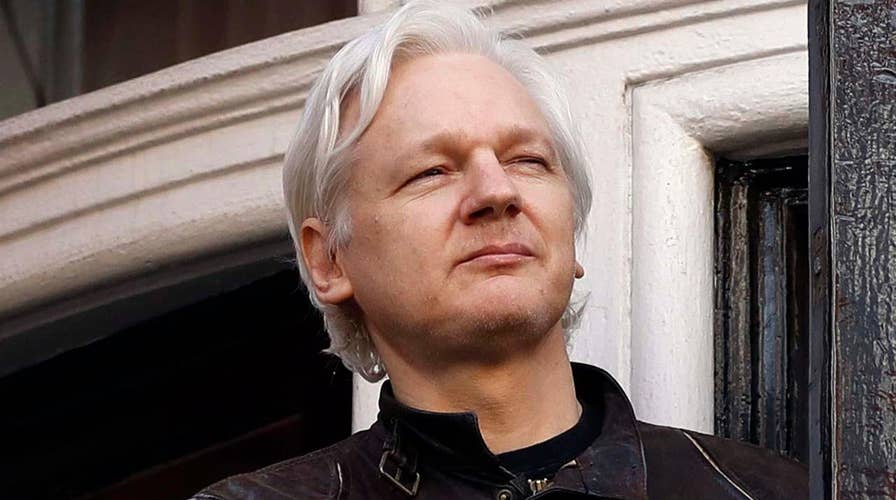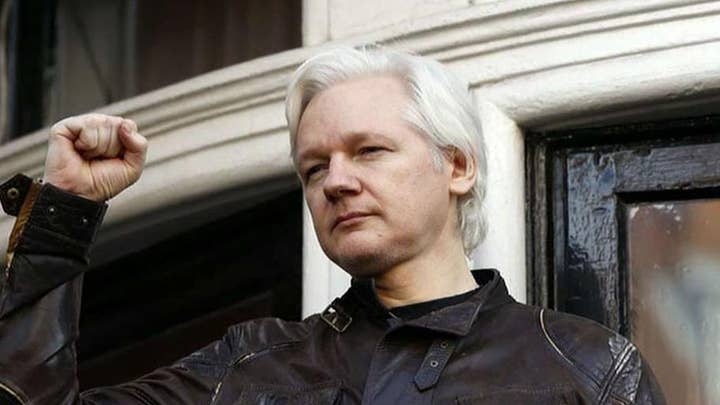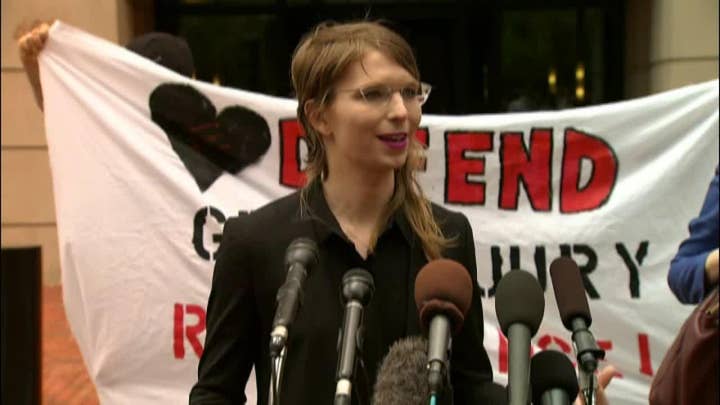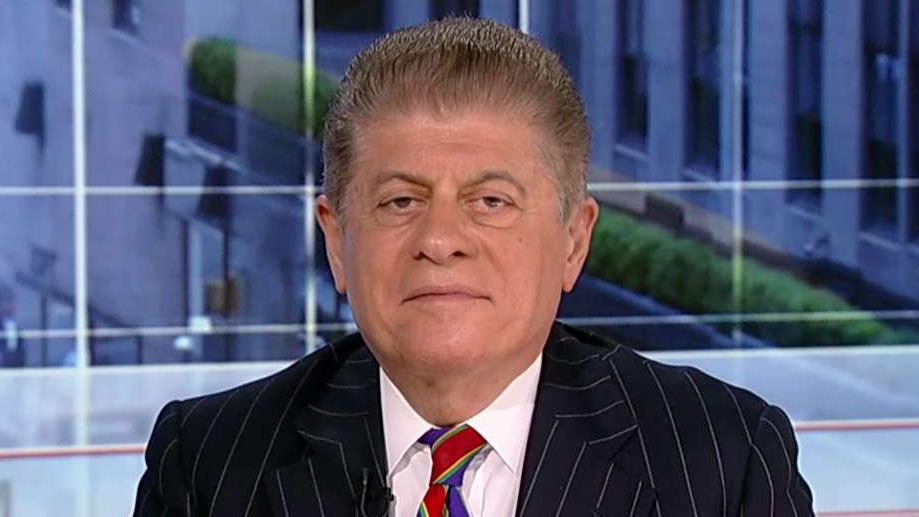Assange indicted on 18 counts, accused of coordinating with Manning to leak classified national-security docs
The Department of Justice charges WikiLeaks founder Julian Assange in 18-count superseding indictment; Catherine Herridge reports.
A federal grand jury returned an 18-count superseding indictment on Thursday charging WikiLeaks founder Julian Assange with a slew of offenses over his alleged role in one of the largest leaks of classified information in U.S. history.
The indictment alleged Assange coordinated with former Army intelligence analyst Chelsea Manning to leak classified documents related to U.S. war and diplomacy efforts around the world.
U.S. officials claimed Assange worked in tandem with Manning to break into a classified government computer.
Manning, who served several years in prison for leaking to WikiLeaks, was jailed in March after refusing to testify to a grand jury regarding WikiLeaks.
In response to the charges, WikiLeaks tweeted Thursday, "This is madness. It is the end of national security journalism and the first amendment."
The indictment specifically alleged that Assange agreed to receive classified documents from Manning and “aided and abetted her in obtaining classified information with reason to believe that the information was to be used to the injury of the United States or the advantage of a foreign nation,” as well as caused her to provide classified documents.
The indictment charged that Assange published the unredacted names of sources who gave information to U.S. forces in Iraq and Afghanistan as well as to State Department diplomats around the world.
JULIAN ASSANGE'S ARREST DRAWS FIERCE INTERNATIONAL REACTION
The sources included journalists, religious leaders, local Afghans and Iraqis as well as political dissidents from repressive regimes, according to the Justice Department.
“Assange’s actions risked serious harm to United States national security to the benefit of our adversaries and put the unredacted named human sources at a grave and imminent risk of serious physical harm and/or arbitrary detention,” according to the superseding indictment.
In late 2009 Assange and WikiLeaks allegedly “actively solicited United States classified information, including by publishing a list of ‘Most Wanted Leaks’ that sought, among other things, classified documents,” the DOJ added.
The superseding indictment revealed that in 2010 Manning allegedly used the access she had as an intelligence analyst to search for classified documents and gave Assange and WikiLeaks databases that had “approximately 90,000 Afghanistan war-related significant activity reports, 400,000 Iraq war-related significant activities reports, 800 Guantanamo Bay detainee assessment briefs, and 250,000 U.S. Department of State cables,” even though many of these documents were classified at the Secret level. The DOJ claimed it meant “their unauthorized disclosure could cause serious damage to United States national security.”
Manning also allegedly gave WikiLeaks “hundreds of thousands of documents classified up to the SECRET level that she downloaded from departments and agencies of the United States, including the Afghanistan war-related significant activity reports and Iraq war-related significant activity reports,” according to the indictment.
Those reports described the circumstances and limitations under which U.S. forces would initiate or engage in combat with other forces, according to the DOJ.
The superseding indictment alleged that Assange “actively encouraged” Manning to provide more information during their discussions.
WIKILEAKS FOUNDER JULIAN ASSANGE ARRESTED AFTER ECUADOR WITHDRAWS ASYLUM
Assange also has been charged with conspiracy to commit computer intrusion for allegedly agreeing to crack a password hash stored on Defense Department computers connected to the Secret Internet Protocol Network, a government network used for classified documents and communications.
Ben Brandon, a lawyer representing the U.S. government, said in court earlier this month that American investigators had acquired details of communications between Manning and Assange in 2010. The two had allegedly “engaged in real time discussions regarding Chelsea Manning’s dissemination of confidential records to Mr. Assange.”
Also, earlier this month, Assange, 47, told a British court he wouldn’t agree to be extradited to the U.S. where he’s facing the charges of conspiracy to hack a Pentagon computer.
He addressed the court on May 2 via video link from a prison in London, saying he wouldn’t “surrender myself for extradition for doing journalism that has won many awards and protected many people.”
That hearing came just a day after the WikiLeaks founder was sentenced to 50 weeks in prison in the U.K. for jumping bail in 2012 and hiding in the Ecuadorian Embassy in London in an effort to avoid extradition to Sweden where he was wanted for questioning over rape and sexual assault allegations.
CLICK HERE TO GET THE FOX NEWS APP
Assange is currently serving that sentence in the U.K. and his extradition to the U.S. is being handled by the Justice Department’s Office of International Affairs.
If convicted, Assange faces a maximum of 10 years in prison on each count except for conspiracy to commit computer intrusion which has a maximum penalty of five years.
Fox News' Catherine Herridge, Bill Mears and The Associated Press contributed to this report.












































